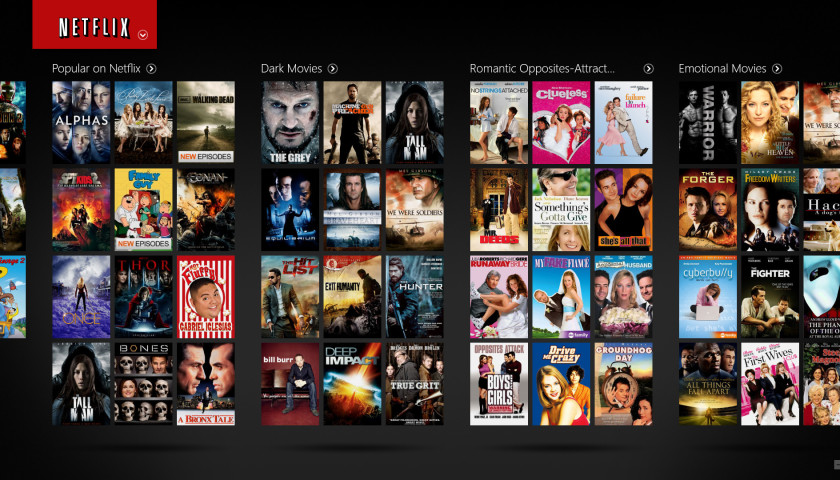Netflix Facts
Netflix is the first and largest major online DVD rental service, offering flat rate rental-by-mail to customers in the United States. By 2005, the service has attracted over three million subscribers, and the company expects the number to reach four million by the end of the year. It has amassed a collection of over 50,000 titles.
Netflix Rentals
The company provides a monthly flat-fee service for rental of supposedly unlimited numbers of DVD movies. A subscriber creates an ordered list, called a rental queue, of DVDs to rent. The DVDs are delivered individually by way of the United States Postal Service from an array of regional warehouses (currently 35 or more).
A subscriber keeps a rented DVD as long as desired, but (depending on what subscription level is being paid for) has a limit on the number of DVD movies that can have checked out at any one time. To rent a new DVD, the subscriber mails the previous one back to Netflix in a prepaid mailing envelope. Upon receipt of the disc, Netflix ships another disc in the subscriber’s rental queue.
Delivery time is dependent on the postal service and on a Netflix policy which critics call “throttling,” which delays shipments to its most frequent users. This policy is outlined in Netflix’s terms of use. Netflix claims to serve 90% of its customers with “generally” one business day service. If the received disc is damaged or unplayable for some reason, or if the wrong disc was received, the customer can return it for a replacement or have the next item in the rental queue sent instead.
At present (2005), Netflix’s most popular plan costs $17.99, which allows a subscriber to check out up to 3 DVDs at once. Other monthly programs with a variety of checkout limits range from US$9.99 to $47.99.
Netflix History
Netflix began in 1998 with an online version of a more traditional pay-per-rental model ($4 per rental plus $2 in postage; late fees applied). It did not introduce the monthly subscription concept until late 1999. Since then it has built its reputation on its policies of having no due dates, late fees, shipping or handling fees, or per-title rental fees.
Unlike most online on-demand entertainment services, such as eMusic, Netflix’s offerings cover the vast range of DVD movies (and increasingly, television series) with more than 45,000 titles (as of 2005), including titles by major and minor studios (excluding pornographic movies). Particularly, Netflix has become noted for its extensive collection of documentary films, Japanese anime, and independent films, many usually hard to find in traditional rental shops.
Indeed, “some 35,000 different film titles are contained in the 1m DVDs it sends out every day.” According to SEC filings, the company had attracted a million subscribers by the fourth quarter of 2002 and two million by the second quarter of 2004.
Furthermore, Netflix has developed and maintained an extensive recommendation system based on rating and reviews by customers, similar to the system at Amazon.com; the company believes this gives it an edge in competing with newcomers like Blockbuster.
James Rocchi, a film critic also known as Mr. DVD, has contributed to reviewing movies. Moreover, the growth has been fueled by the fast spread of DVD players in households; as of 2004, nearly two-thirds of US homes have a DVD player. Netflix also operates an affiliate program which has helped it to build online sales for DVD rentals.
Netflix is an example of the odd situation about copyright issues on the Internet. While it is possible and probably more convenient to download directly movies via the network, license issues and the fear of piracy prevents such a service.
While he believes it would not be an instant success because of complications in copyright handling and relatively slow adoption of broadband Internet, Netflix CEO Reed Hastings has said that Netflix will offer limited video on demand by late 2005 with which users can download movies via the Internet and that it may even expand into the video game market.
Netflix has been one of the most successful dot-com ventures. A New York Times article from September 2002 said that, at the time, Netflix mailed about 190,000 discs per day to its 670,000 monthly subscribers. The article estimated that the company therefore distributes 1,500 terabytes of data per day, almost as much data that travels across the entire Internet in one day.
Netflix was hit with a consumer class action suit in San Francisco September 2004 for alleged false advertising and other claims related to its DVD deliveries, said the settlement is expected to cost between $3 million and $4 million this quarter.
The complaint asserts claims of, among other things, false advertising, unfair and deceptive trade practices, breach of contract as well as claims relating to the Company’s statements regarding DVD delivery times. The complaint seeks restitution, disgorgement, damages, and injunction and specific performance and other relief.
After incurring substantial losses during its first few years, Netflix posted its first profit during fiscal year 2003, earning $6.5 million profit on revenues of $272 million. Founded by Reed Hastings, Netflix was incorporated on August 29, 1997 and began operations on April 14, 1998. Netflix initiated an initial public offering (IPO) on May 29, 2002, selling 5,500,000 shares of common stock at the price of $15.00 per share. On June 14, 2002, it sold an additional 825,000 shares of common stock at the same price.




